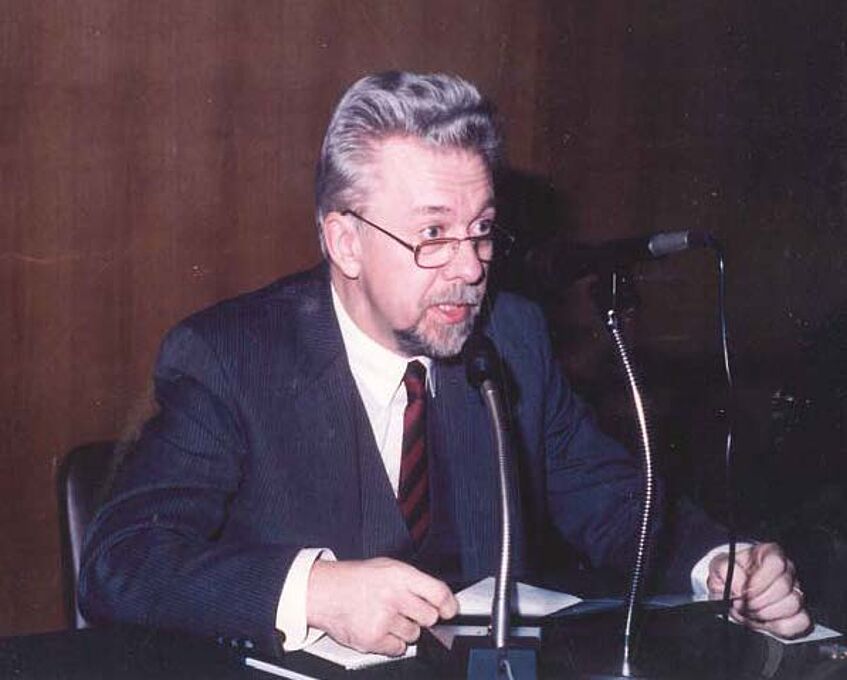The 5th Gunnar Hering-Lecture

Prof. Dr. Gunnar HERING
Bildmaterial von Prof. Dr. Olga Katsiardi-Hering
The 5th Gunnar Hering-Lecture
took place as an online-event on June 15, 2021.
This year's invited speaker was
Prof. Mathieu Grenet
(Institut National Universitaire J.-F. Champollion/Albi),
who was followed by
Prof. Peter Becker
(University of Vienna) with a detailed response.
“Tous ces consuls de bazar”:
French consulates and Greek staff in the early modern Mediterranean (17th-18th centuries)
Abstract:
For long in the shadow of ambassadors and other high-ranking diplomats, consuls and consular systems have only recently become the focus of historical studies, most of them dealing with the early modern Mediterranean.More than the mere “rediscovery” of seemingly minor players in issues of international trade and cross-cultural contacts, this new interest has led to a broader reassessment of their role in both the implementation of early modern trading policies, the social and political life of foreign “nations” abroad, and the process of “bureaucratization” of Ancien Régime state institutions.
France is a case in point, as the standard narrative has it that by the end of the 17th century, Colbert had turned the medieval, Marseilleoperated, consular system, into a modern, state-run, and national institution. Evidence however suggests that this process was in fact more complex and nuanced than is often assumed: hence, the role of Greek reayas in some of the more remote consular posts in the Eastern Mediterranean. My talk therefore aims to investigate the recruitment policies, career strategies and administrative practices of these ‘nonnational’ staff. I will seek to understand what prompted them to enter the French consular service (sometimes alongside that of other European powers), against the backdrop of 17th- and 18th-century policy reforms that sought to give preference to French nationals for the exercise of consular duties. At a time when consular services became part of a complex process of definition of state sovereignty, the way these multiple, allegedly exclusive loyalties were articulated, sheds new light on issues of "foreign” and “national” in the making of the modern state.
This years's speaker:
Mathieu Grenet holds a doctorate from the European University Institute of Florence (2010) and is a lecturer in Modern History at the INU Champollion in Albi, a researcher in the UMR 5136 Framespa, a junior member of the Institut Universitaire de France (2019-2024) and the editorial director of the review Diasporas. Circulations, Migrations, Histoire (https://diasporas.revues.org). He is the author of La Fabrique communautaire: les Grecs à Venise, Livourne et Marseille, 1770-1840 (Rome and Athens, 2016), as well as of several books and articles on international mobilities, intercultural contacts and identity constructions in the Mediterranean in the modern period.
In cooperation with:
ÖGNS/ Austrian Society of Modern Greek Studies
Faculty of Historical and Cultural Studies of the University of Vienna
Department of Byzantine and Modern Greek Studies
Contact: maria.stassinopoulou@univie.ac.at; angelika.hudler@univie.ac.at
